Plenary speakers at NPS 19
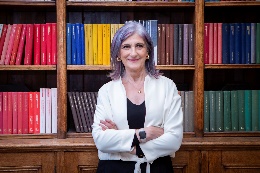
From Applications to Fundamentals: The Power of Multiscale Modelling
Prof. Raffaella Ocone, Heriot-Watt University, UK
CV: Raffaella Ocone OBE, FREng, FRSE holds degrees from the Università di Napoli, Italy, and Princeton University, USA. She holds the Chair of Chemical Engineering at Heriot-Watt University, UK, and is a Guest Professor at Ruhr University Bochum, Germany. Currently, she serves as the Deputy President of the Institution of Chemical Engineers (IChemE) and will become the 84th President in 2025. In 2007, Raffaella was honoured with the title of Cavaliere by the President of the Italian Republic. In 2019, she was recognised as one of the top 100 Most Influential Women in the Engineering Sector by Inclusive Boards, in partnership with the Financial Times. In 2017, she became the inaugural "Caroline Herschel Visiting Professor" in Engineering at Ruhr University Bochum, Germany, in recognition of her contributions to engineering ethics. affaella's research primarily focuses on modelling multiphase reactive systems, with a particular emphasis on developing responsible technologies in the energy sector. Her current work centres on advancing low-carbon hydrogen production.
Abstract: Engineers frequently use macroscopic models to facilitate the design, development and operation of equipment, technologies and processes. While these models are often considered “predictive”, they typically provide only qualitative insights and trends. Accurate quantitative predictions are less common, particularly for complex systems and processes. This limitation arises from challenges such as the lack of effective methodologies to scale up microscopic physics, the inability to accurately describe mesoscale phenomena and the absence of appropriate constitutive equations.
In the context of particulate flow, existing models and theories often fall short in terms of robustness, predictability and flexibility, making it difficult to fully capture the range of behaviours observed in these systems. Industrial issues like particle agglomeration are still managed largely through empirical methods and ad-hoc models tailored to specific flow conditions, relying heavily on operator expertise.
This presentation will focus on one of the models used for granular and particle laden flows, namely the kinetic theory for granular flow (KTGF), which draws an analogy between solid particles and gas molecules to effectively model the macroscopic behaviour of particulate flow. Despite its successes, KTGF has shown limitations that will be discussed, along with the challenges it presents. Our ongoing research in this area will also be highlighted and critically assessed.
_____________________________________________________
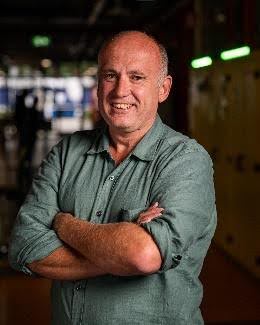
ISPT’s long term program process technology
Prof. Sascha Kersten, University of Twente, The Netherlands
CV
Sascha Kersten obtained his MSc degree in chemical engineering from the University of Amsterdam, and a PhD on biomass gasification in circulating fluidized beds from the University of Twente.
He started his career at the Energy Research Centre of the Netherlands, where he worked on modeling of dynamic systems and later on biomass conversions. Since 2003 he has been working at the University of Twente. There, Sascha was appointed full professor in Sustainable Process Technology in 2011. Since 2018 he is associated with ISPT, the Institute for Sustainable Process Technology. He is chairman of the Academic Advisory Board and Program Director of the Long Term Program since 2023.
Abstract
The Long Term Program (LTP) is an ambitious initiative by the Institute for Sustainable Process Technology aimed at developing process technology for 2050. By then, the value chains from raw materials to end products in industry are expected to have changed radically. Unique to the Netherlands, the LTP focuses on pioneering technologies that do not yet exist today, setting the stage for a fully sustainable process industry. The LTP program brings together scientists from socio-economic transitions, (bio)process technology, catalysis and materials technology, and partners them with companies in chemistry, materials, energy production and food. This interdisciplinary and cross-technology approach is essential for the actual implementation of innovations. During NPS 19, Sascha will explain more about LTP and the first projects that have started within the program: TREPS (Trace Removal Using Electrically Powered Separations) and SUNSOLr: Electrification of Chemical Conversions.
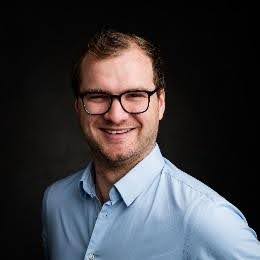
Year-round heat and CO2 supply with combined hot water boiler and carbon capture technology
Dr. Ir. Thomas Brouwer, HoSt, The Netherlands
CV:
Dr. Ir. Thomas Brouwer, born in Deventer, studied Chemical Engineering at the University of Twente from 2009 to 2015, including a board year at C.T.S.G. Alembic.
During his studies, he met his wife, and he is now a proud father of a beautiful daughter. He continued pursuing a PhD in solvent-based affinity separation under Boelo Schuur and Sascha Kersten at the Sustainable Process Technology Group at the University of Twente. Alongside his PhD, he served as a part-time lecturer, teaching courses such as Physical Transport Phenomena and Chemical Process Design. After completing his PhD, Thomas began working as an R&D Engineer at the HoSt Group, specializing in gas purification and separation technologies for biogas, flue gas, and landfill gas. Currently, as a product manager at Bright Renewables, a subsidiary of HoSt Group, he focuses on developing modular carbon capture systems while continuing research on long-term technological innovations within the HoSt Group.
Abstract:
HoSt Group is a leading international company specializing in the design, construction, and maintenance of renewable energy systems. Established in 1991 and headquartered in Enschede (NL), the company focuses on bioenergy solutions such as biogas plants, biomass thermal systems, hydrogen systems and waste-to-energy systems. HoSt aims to accelerate the transition to sustainable energy by developing in-house cutting-edge technologies for the conversion of organic waste into renewable energy (electricity, steam, biomethane) and other useful products such as food grade liquid CO 2 , (bio)hydrogen, renewable fertilizers. With a strong commitment to innovation and environmental sustainability, HoSt serves clients globally, including municipalities, industries, and agricultural sectors. In this talk, we will showcase a unique real-world project where several of these technologies are combined to provide year-round heat and CO2 to over 25 hectares of greenhouses. This project addresses not only the technical and operational aspects but also considers seasonal and day/night variations, crop growth cycles, and both planned and unplanned maintenance stops. It serves as an excellent example of engineering in the sustainable technology field.
_____________________________________________________
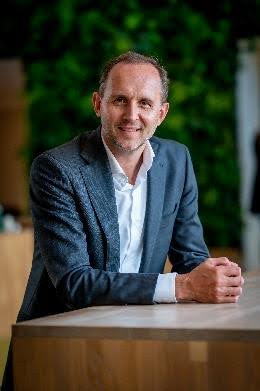
The long road of scaling renewable chemical process technology. The Avantium story on how to bring the new, plant-based polyester PEF to market
Mr. Tom van Aken, Avantium, The Netherlands
CV:
Tom van Aken has studied Chemistry at the Utrecht University. He started his career in the chemical industry at DSM, working for their fine chemicals division in Europe and the United States. In 2002 he joined the start-up company Avantium, where he became CEO in 2005. Under his leadership, Avantium has grown into a world leader in renewable chemistry technologies, focusing on new plant-based polyesters. Avantium is a listed company at the Euronext Stock exchange since 2017. Tom lives in Haarlem, The Netherlands, and is father of 3 daughters. Since 2019 he is member of the Topteam Chemistry.NL and he is the chair of the Dutch start-up roundtable for companies in the chemicals and materials sector.
_____________________________________________________
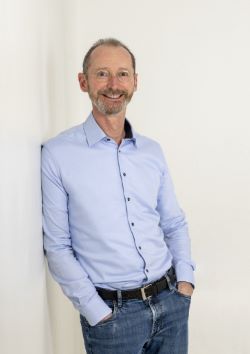
Hoogewerff Gold Medal Lecture
Food Process Engineering – Engineering for Sustainability and Health
Prof. Remko Boom, Wageningen University & Research, the Netherlands.
Abstract: The food industry has steadily become more prominent in The Netherlands and Europe, and has become the country’s largest industrial sector with a total production value of 91.2 billion euro in 2022. As a trading nation, processing raw materials into higher value ingredients and foods is crucial, and therefore, food process engineering is crucial for our future.
The technology for processing foods faces several challenges. It directly impacts the quality and taste of the foods that we all eat, and therefore also creates emotion with consumers, to which the technology has to answer. At the same time, global food production is one of the main contributors to the emissions of greenhouse gases, while the availability of sufficient, high quality food will be a prime challenge in the coming decades due to climate change related land degradation and growth of the global population.
The technology that we currently use for the conversion of the raw materials that we produce on agricultural land, into edible foods, is not very efficient. Only a relatively small part of the total amount of protein that is grown on the land, reaches our plates. This is due to losses over the chain, but also because our current technology for creating food ingredients from their raw materials has often relatively low yield and requires significant amounts of water, chemicals and energy. This can improve if we change our perspective on what food processing should achieve. Traditionally, chemical engineering investigates methods to produce pure, well-defined chemicals and materials. But foods are by nature almost never pure, and generally have an intricate microstructure that is quite important for its properties. We have worked already for many years on developing ‘gentle’ processing methods that reduce the degree of refining and aim for the right properties instead of high purity. With the ingredients that come from this technology, one can create well-structured and stable foods, that could also have better nutritional value. At the same time, the raw material are better utilised, leading to less side streams with higher quality. This new generation of gentle processing methods is becoming accepted by the sector and will allow us to create more high-value foods from less raw materials, that fit in a healthier diet, and will result in significantly less waste throughout the chain.
_____________________________________________________
| Last modified: | 07 October 2024 11.23 a.m. |
